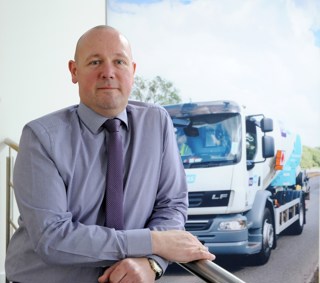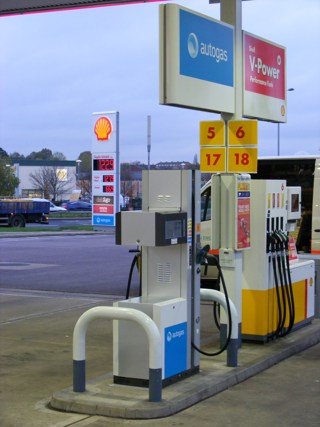Linda Gomersall, general manager at Autogas, explains why a choice of fuels is good for policy.
elivered with a typical dose of his renowned affability, London mayor Boris Johnson recently told the Government’s Environmental Audit Committee inquiry into emissions that it was time to clear the air. Intended as a jovial ice breaker preceding a serious examination of his environmental credentials as London’s leader, it was also a neat shorthand summary of the current major challenge facing the UK.
Dealing with emissions has been a long-term problem across the globe and the UK is not exempt from having to find a way to deal with the issue.
Indeed, the UK is facing a fine of potentially hundreds of millions of pounds from the European Commission because it has yet to reduce emissions levels. A failure to act is costing money as well as impacting on lives. So Mr Johnson’s throwaway quip should really be amplified as a unifying mantra and rallying call to action.
The issue of air quality has risen up the wider agenda following increases in air pollution, particularly as it has become the focus of media and political attention over the course of 2014.
Among policy makers, air quality has often been neglected when giving consideration to road fuels policy. This is changing, mostly as a consequence of the European Commission legal proceedings. But more can be done.
As we look to meet the twin challenges of financial and environmental affordability, it is essential that an integrated approach to road fuels policy is adopted to avoid the belief that the Government favours one fuel over another, or that there is one solution to a challenge that has differing levels for different users, regions and requirements. There is no silver bullet in this challenge and by no means are gaseous fuels such as LPG autogas the total solution.
However, they are certainly part of a range of measures which can be encouraged and grown to make a significant difference quickly.
As a readily available fuel source across 1,400 filling sites in the UK, LPG autogas already presents a current, cost- effective and cleaner alternative to traditional road fuels such as diesel and petrol and, alongside other clean options, it has a critical role to play.
So what needs to be done? We believe the Government, in consultation with industry and vehicle manufacturers, could introduce a number of collaborative measures.
These include:
¦ Give air pollution the same level of priority as tackling climate change and reducing carbon emissions when formulating transport policy.
¦ Replace individual fuel strategies with an integrated road fuels strategy that sets out a framework for all fuels and supports options such as LPG that can improve air quality now, while continuing to support emerging alternatives.
¦ Introduce, as a part of an integrated fuels strategy, limited grant schemes to remove the most polluting cars from the road, potentially through converting these cars to LPG.
¦ Provide wider support for local authorities to move their fleets to less polluting forms of fuel.
¦ Review wider incentives for road fuels, working with local authorities to ensure that support is given to all fuels that can reduce air pollution.
¦ Ensure there is greater consultation with key departments such as the Department for Health, Department for Environment, Food and Rural Affairs, Department for Transport and HM Treasury when determining fuels policy.
The Government last year set out a 10-year duty trajectory for gaseous fuels which ensures they remain significantly cheaper than petrol and diesel, as well as outperforming them from an environmental perspective.
This was a welcome vote of confidence and a base from which to further grow the sector.
However, this in isolation will not achieve the necessary results. We need to do more and only an integrated approach will achieve the level of result needed to make a difference and help everyone – not just Boris – clear the air.



















Login to comment
Comments
No comments have been made yet.